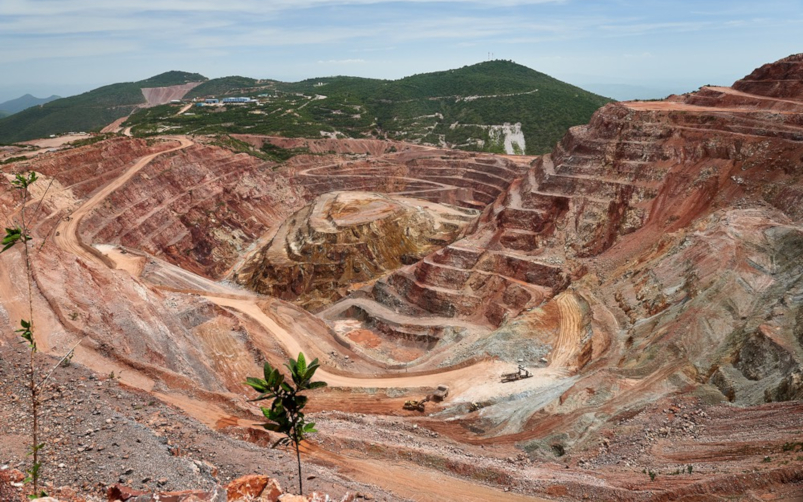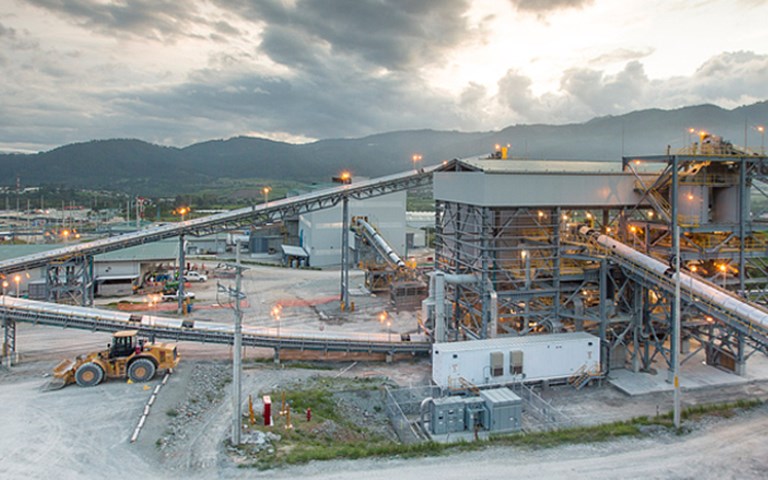Tahoe and Pan American's disclosure statements to shareholders about the controversial Escobal mine are the focus of investigation requests filed with the B.C. Securities Commission. Courtesy of Tahoe Resources
CORRECTED on Jan. 4, 2019
Three environmental and Indigenous-rights activist groups are asking the British Columbia Securities Commission to investigate Pan American Silver and Tahoe Resources’ shareholder disclosures regarding Tahoe’s Escobal mine in Guatemala.
The move comes days before Pan American shareholders’ Jan. 8 vote to approve the company’s all-share US$1.067-billion acquisition of Tahoe.
Earthworks, Maritimes-Guatemala Breaking the Silence Network and MiningWatch Canada contend that Pan American has adopted Tahoe’s “unjustifiably optimistic” position on Escobal’s planned re-opening, and omitted information about serious opposition to Tahoe’s consultation process with the Xinca Indigenous people who live near Escobal.
“It’s very important for investors, I think, to get a fulsome explanation of what’s happening on the ground, and not cheery reports of how everything’s going to be fine when in fact it’s not,” said Shin Imai, a lawyer and director of the Justice and Corporate Accountability Project, who is representing the four groups.
Tahoe did not immediately respond to requests for comment.
Christopher Lemon, Pan American’s general counsel, said through a spokesperson that the company believes “issues relating to the Escobal mine have been well-documented in the disclosure records of Tahoe Resources over the past several years, and Pan American Silver has further described these risks.”
In its management information circular filed in December, Pan American said that the deal “is not without risk,” as operations at Escobal have been halted since July 2017, and the Guatemalan Constitutional Court upheld that suspension in September 2018 until the country’s Ministry of Energy and Mines had completed consultations with Xinca residents near the mine. The company also noted that resuming operations would require an end to the blockade near the town of Casillas.
The company said that the structuring of the deal to give Tahoe shareholders “contingent value rights” of 0.0497 Pan American shares for each Tahoe share they own that are payable upon the first commercial shipment of concentrate after operations restart at Escobal helped to mitigate some risk.
Related: Guatemalan mines ministry ordered to consult with Xinca Indigenous people before Tahoe’s Escobal can re-open
In addition to requiring completed consultations in compliance with the International Labour Organization’s Convention 169 concerning Indigenous and Tribal Peoples in Independent Countries, the constitutional court quashed the progress Tahoe had made on its last exploration licence. It also upheld a lower court decision that ordered the Guatemalan government to review its laws around royalties for communities affected by mining.
The companies have not made mention of either part of the court decision in their public comments about Escobal.
Pan American and Tahoe, the groups say, have also failed to inform shareholders that Tahoe’s court-mandated consultation has already been met with “significant opposition and conflict,” and that two subsequent lawsuits have been filed by the Indigenous group, alleging Tahoe and the Guatemalan government have not properly engaged with them, and have begun the first stage of consultation without their participation.
Tahoe said in its third-quarter results in early November that the first of the four consultation stages was “well advanced,” and that the mine’s “area of influence” had been defined and was being sent to the country’s Ministry of Environment and Natural Resources for approval.
Pan American’s Lemon emphasized that the company has not yet participated in the consultation process but would “as and when it is appropriate to do so.
“We agree that proper consultation with Indigenous groups and broader engagement with communities of interest are important to gaining the social acceptance for the Escobal mine to re-open,” Lemon said. “We look forward to peacefully engaging with these stakeholders in good faith…We have been clear that this process will take time and we have never set a timeline for the restart of the Escobal mine.”
Imai said the groups want to see Tahoe participate in “an actual engagement” with the Xinca people.
“The consultation objective is to try to get consent or an agreement with the Xinca people,” Imai said. “You have to build relationships, and if mining companies are announcing the process is going well and [Xinca] leadership is saying no, it isn’t…you don’t have to be a genius to say it’s not starting off on the right foot.”
CORRECTION: We initially reported that the Diocesan Committee for the Defense of Nature in Guatemala was one of the groups asking the B.C. Securities Commission to investigate Pan American and Tahoe. The committee is not a part of the complaint. CIM Magazine regrets the error.



